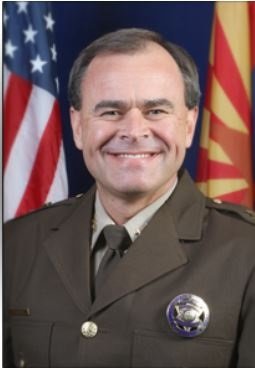Yavapai County Approves Budget for OHV Law Enforcement
The Yavapai County Board of Supervisors recently passed a budget of $796,570 to support the Yavapai County Sheriff’s Office’s OHV Law Enforcement division. This includes a state grant of $557,370 that spans over two years. The decision came during their meeting on June 4th.
Chief Deputy Jeff Newnum mentioned that this funding would help them maintain a full-time law enforcement presence dedicated to OHV activities. “We’re getting an equivalent agent, fully equipped for enforcement,” he noted.
The project’s financial breakdown shows a county commitment of $239,200 in staff time, along with $108,100 set aside for equipment—such as twelve trail cameras—and $10,000 for educational materials.
District 4 Supervisor Chris Kunyo expressed concerns, stating, “People are really upset about this, and it’s a bit chaotic.” He remarked on the challenges related to holding renters accountable for their tenants’ actions. “I think Sedona is facing significant issues with this,” he added.
Reports indicated damage to 78.7 acres attributed to suspected OHV usage around Sedona, which is a small fraction of the larger Coconino National Forest. However, no clear estimates exist for the damage within Sedona and its surroundings.
Kunyo also pointed out that the area from Prescott to Seligman is experiencing difficulties.
Newnum stated that this new agent will be part of the YCSO Forest Patrol Squad, which will aid in various rescue operations and support different teams, including mountain bikers and ground search units.
Nikki Check, the District 3 manager, expressed optimism about the initiative, saying it’s a good beginning for managing OHV impact. “We want to stay dedicated to finding lasting solutions for this issue,” she emphasized.
Newnum indicated that YCSO is exploring additional resources to enforce OHV regulations effectively.
The board had previously approved the grant application on April 16th.
Rhodes remarked that this funding represents three years of efforts with state legislators focusing on OHV concerns in Yavapai County, which is a significant topic for many residents.
The rise in licensed OHVs in Arizona—jumping from 100,000 to 250,000 during the pandemic—has increased enforcement costs, yet specific figures were not provided for YCSO services in rural areas.
Rhodes, being part of the Arizona Off-Highway Vehicle Research Committee, advocated for funding from OHV registration fees to help support law enforcement in this area.
“Each county has been developing its programs to address this issue,” he added. “I’ve set this up to ensure there’s a certified agent as the OHV coordinator.”
He noted that a recently acquired helicopter could also support enforcement efforts.
According to Rhodes, the Arizona State Parks Commission has committed to ongoing funding for this initiative, although they approve it one year at a time. He expressed optimism that the legislation passed will secure county funding for this effort moving forward.
YCSO has not responded to additional inquiries regarding OHV enforcement and jurisdiction at this time.















